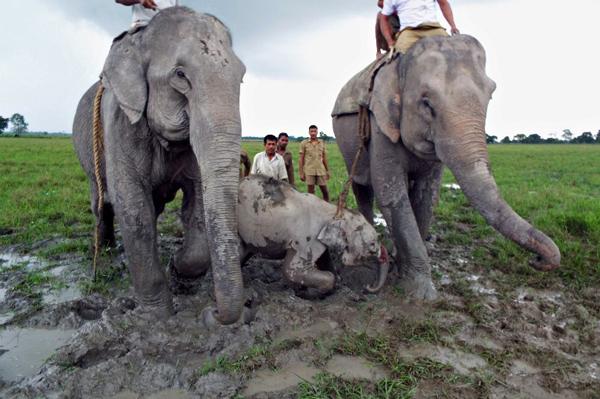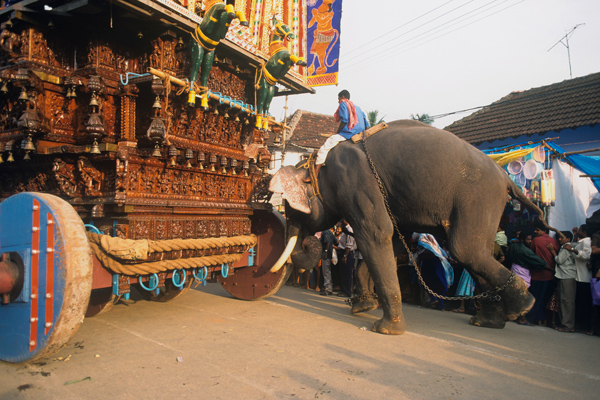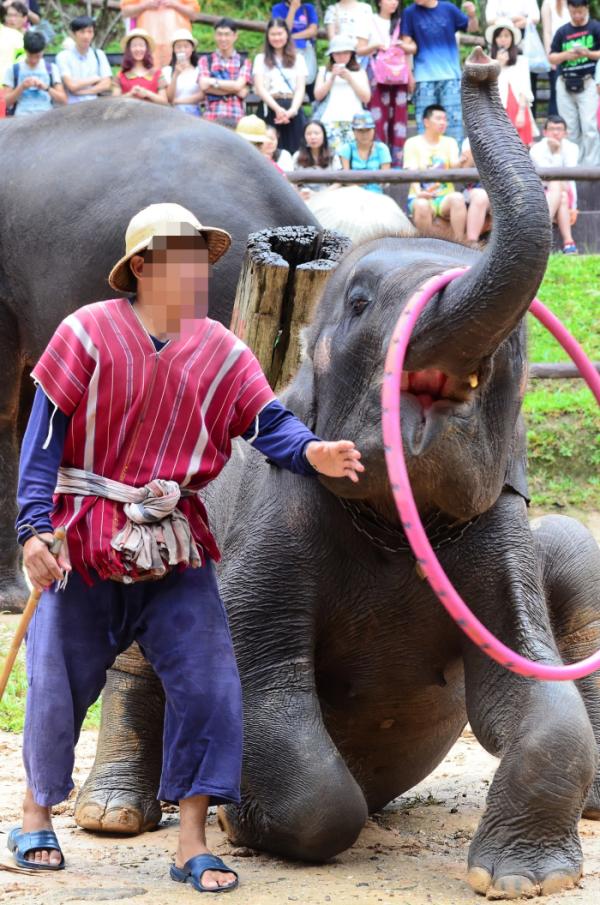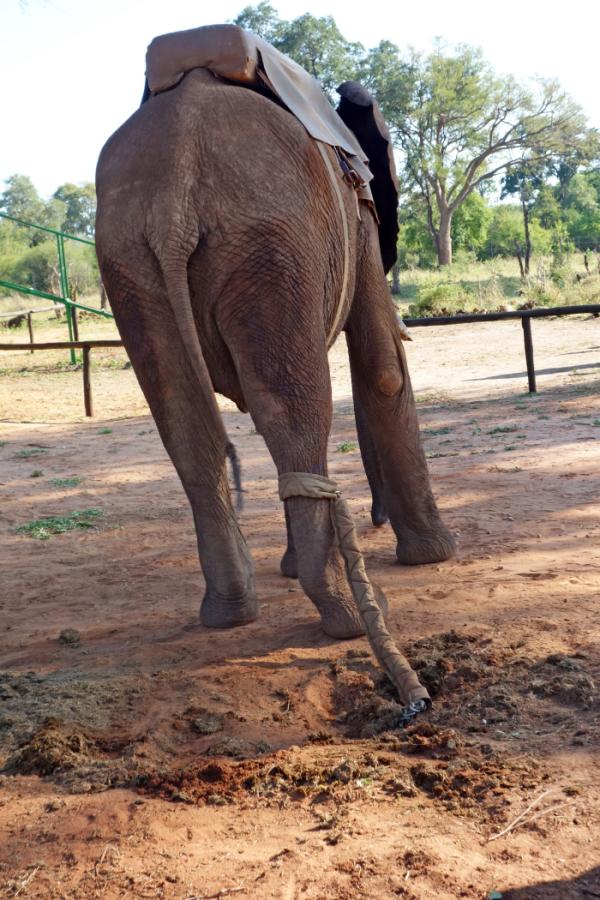
Growing up in a village that lies on the fringes of Rajaji National Park in India has inculcated an undying fascination for these magnificent creatures in me. On jungle safaris that had become our family tradition since the days of my great-grandfather, I often caught striking glimpses of them. Sometimes they would peacefully walk in herds, at other times they would violently break trees, and once they even charged at us in anger when we startled them.
In my mind, elephants are mighty yet enigmatic creatures. But the appalling plight these animals are facing across the world makes me feel sick.
What distresses me the most is the fact that a number of reports around elephant torture finds their origin in South Asia, especially in the Indian peninsula. This is happening in a country which every year, with utmost dedication and vigour pays its respect to Lord Ganesha in form of a grand nation-wide festival.

Photo: AFP
Tales of torture: 'Wildlife not entertainers'
A recent campaign launched by World Animal Protection titled 'Wildlife not Entertainers', has raised crucial issues around the use of elephants in the tourism industry across South Asian and African countries. The report highlights the atrocities to which these creatures are subjected to while they are used for rides and shows.

Photo: Getty Images
According to World Animal Protection, elephants used for rides and performances have to endure a high degree of mental and physical stress in order to be trained. Baby elephants are separated from their mothers at a young age, isolated, starved, and beaten in order to break their spirits in a training method known as "the crush".

Photo: World Animal Protection
Many elephant parks offer rides to tourists, while some force the elephants to perform tricks in shows or pose for photos or selfies. Elephant safaris exist in countries like Thailand, but the charity wants to make one point known: "there are no cruelty-free elephant rides".
'A captivity in hell'
Recently, British journalist Liz Jones travelled to Kerala, only to discover the horrors of captivity where around 600 elephants are kept under private ownership. In the Daily Mail, Jones shared the heart-rending plight of these elephants which are forced to spend months at secret 'training' camps where they are tortured before employing them for the services at temples.
This is apparently not the first time that the atrocities against these temple elephants has been reported. Temples reportedly use elephants to draw crowds and solicit donations that are used to maintain the temples. These elephants are often chained the entire day, tortured, and ill-fed. There have been terrifying reports of elephant masters, locally known as 'mahouts', of brutally wounding or burning the animals when they show disobedience. This has also led to deaths of these animals.

Photo: World Animal Protection
According to John Bradshaw, University of Bristol's School of Veterinary Science, "Keeping elephants in unsuitable areas and enforcing a human controlled way of life that deviates from the normal lives of free-roaming affects the psychological health of these animals." Health issues such as chronic foot problems, abnormal weight and susceptibility to diseases have been reported.
But do we even care?



![BJP's Kapil Mishra recreates Shankar Mahadevan’s ‘Breathless’ song to highlight Delhi pollution [WATCH] BJP's Kapil Mishra recreates Shankar Mahadevan’s ‘Breathless’ song to highlight Delhi pollution [WATCH]](https://images.catchnews.com/upload/2022/11/03/kapil-mishra_240884_300x172.png)

![Anupam Kher shares pictures of his toned body on 67th birthday [MUST SEE] Anupam Kher shares pictures of his toned body on 67th birthday [MUST SEE]](https://images.catchnews.com/upload/2022/03/07/Anupam_kher_231145_300x172.jpg)






